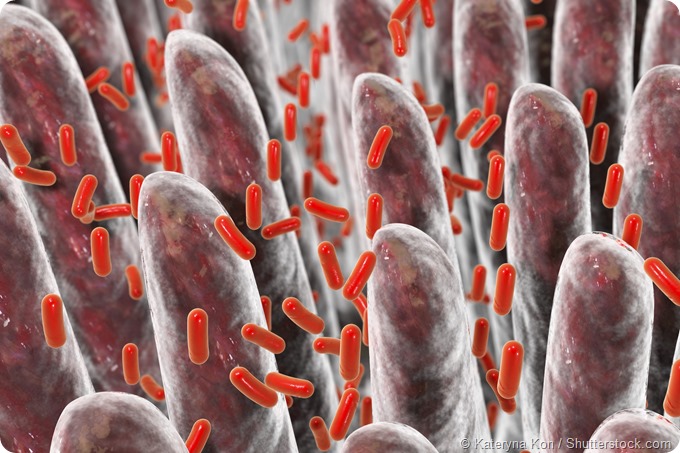The human microbiome refers to the entire community of microorganisms that live on or in the human body. More specifically, it refers to all of the genes in these microbes, which include bacteria, fungi, protozoa, and viruses.
Scientists re-define what's healthy in newest analysis for Human Microbiome Project
The array of microorganisms in the human body is vast, with the number of genes in the microbiome far outnumbering that of the genome, by approximately 100 to 1. This vast abundance of microbes leads some experts to consider the body as a “superorganism,” … a blend of human and microbial cells and traits.
The microbiome is thought to affect people’s susceptibility to infection and is also considered a contributing factor in certain chronic bowel conditions such as Crohn’s disease and irritable bowel syndrome. Some microbial communities may determine how effective a therapeutic agent is and a mother’s microbiome may even influence her children’s health.
The Human Microbiome Project (HMP) is a research initiative sponsored by the National Institutes of Health. It aims to study the human body as if it were a superorganism and to establish the role the human microbiome plays in health and disease. Researchers are describing the combined genomes across all microbes found in five areas of the body.
The project has involved more than 200 scientists teaming up to perform genetic mapping of the microbiome across almost 300 young, healthy people. The body sites being looked at include the mouth, colon, skin, nose, and vagina. By examining the genetic variation between all of the microbes at these sites, and between individuals, researchers hope to gain knowledge about how the microbiome contributes to health and disease states.

Just as the studies of the human genome have lead to valuable insights into human health and disease, research into the microbiome has also provided useful information. Mapping the microbiome and measuring the amount of different microbial species that make up the microbiota has led to the discovery that certain combinations of species are associated with disease.
So far, the genetic mapping has shown that, on average, each person is host to more than 500 different microbial species, with each person having a unique combination of microbes. Despite this combination being unique to the individual, certain patterns seem to make up healthy microbiomes, as opposed to less healthy ones.
The findings suggest that it is becoming ever more probable that the microbiome affects our health just as much or even more than the genetic material that is inherited from parents. Unlike these inherited genes, which are for the most part unalterable, advanced medical technology and knowledge can enable changes to be made to the microbiome that may improve health.
Further understanding of this diversity and relative abundance of microbes may lead to the development of new therapies that, for example, may involve the use of beneficial bacteria to treat infection caused by pathogenic bacteria.
Some of the areas currently being questioned by HMP researchers include the following:
- How a certain microbiome is established in a person and whether or not it changes over time
- How the microbiota and host interact
- How certain microbial combinations influence disease
- How the microbiome is affected by antibiotics
- How microbes affect a person’s response to medications
- Whether changing the microbiome can enhance human health
Further Reading